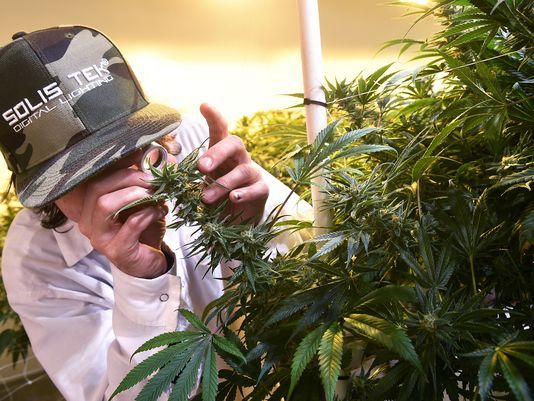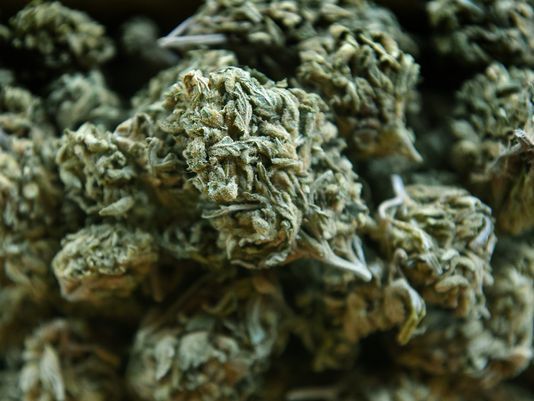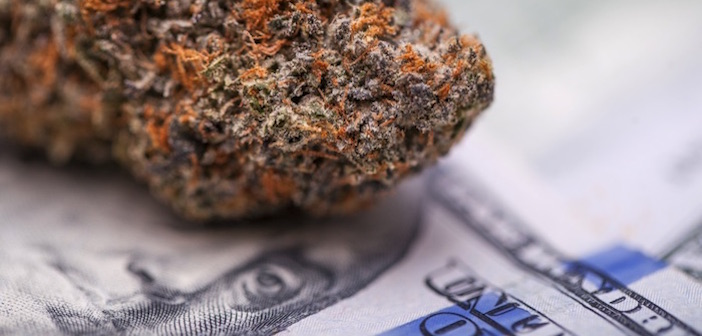Recreational sales of marijuana in Nevada may not begin next month after all.
A judge added to the uncertainty Tuesday when he extended a temporary order barring the state from issuing pot distribution licenses to existing medical marijuana dispensaries so they can begin recreational sales July 1.
Carson City District Judge James Wilson said in a 11-page ruling that the ballot measure voters approved in November dictates that licensed alcohol wholesalers have the exclusive rights to pot distribution licenses for 18 months.
State regulators — who earlier indicated they would need at least some legal dispensaries to serve the dual role of retailer and distributor to meet the anticipated demand — said late Tuesday they remain determined to launch the first sales next month. But they admitted they aren’t sure how, or if, that will happen.
Wilson ruled the regulation the Nevada Tax Commission adopted in May that could have opened distribution up to others was invalid, and he granted a preliminary injunction scrapping the license application deadline that passed May 31.
He said the members of the Independent Alcohol Distributors of Nevada demonstrated they will suffer irreparable harm if he doesn’t block the state from licensing existing marijuana businesses as distributors.
Wilson said the Tax Commission engaged in “ad-hoc rulemaking” outside the legal process when it made a preliminary determination earlier this year that the liquor industry didn’t have enough interest in entering the pot business to ensure enough distributors would seek applications to meet the anticipated high demand. The commission cited alcohol industry concerns that their federal liquor licenses could be jeopardized given pot possession is still illegal under federal law.
“The department has not determined whether exclusively licensing liquor wholesalers as temporary marijuana distributors will result in an insufficient number of licenses,” Wilson wrote. He said there’s no evidence the department has determined what the likely demand for retail marijuana will be or how much demand any particular alcohol distributor licensee can handle.
It has been legal for adults to possess up to an ounce of marijuana in Nevada and consume it in private residences since the beginning of this year. But currently only medical dispensaries can sell it and only to people with medical cards.
Under the direction of Gov. Brian Sandoval, state tax officials have had a goal of launching an “early start” recreational program July 1 to get a jump on millions of dollars in tax revenue before a permanent regulatory system is required to be in place Jan. 1, 2018.
The judge’s order limiting licenses strictly to liquor wholesalers is the biggest roadblock they have faced yet because only five liquor wholesalers have applied for pot distribution licenses — compared with more than 80 applications from existing marijuana businesses — and none has met the legal requirements.
The Nevada Department of Taxation is reviewing the court’s decision with the attorney general’s office and “will explore all legal avenues to proceed with the program as provided in the regulations,” department spokeswoman Stephanie Klapstein said in a statement.
“We do not have any qualified liquor wholesale dealers to license as marijuana distributors at this time,” Klapstein said. She said the agency is notifying applicants about “what they need to do to make their applications complete so we can further process them.”
“We hope for a quick response from those who are seeking exclusivity in marijuana distribution,” she said. “We are committed to ensuring that the vote of the people to provide for the legal purchase of marijuana from a strictly regulated market will proceed on July 1.”
As many as 60 medical dispensaries certified as of May could be eligible for recreational sales beginning next month, but only if they can be served by licensed distributors.
“There’s no recreational marijuana program if there’s no distributors,” Nevada Department of Taxation Director Deonne Contine testified during a hearing Monday before Wilson. “We cannot have sales on July 1 — or anytime.”
Wilson agreed with the alcohol distributors’ argument they will “very likely be shut out of the marijuana business entirely if the department issues distribution licenses to non-alcohol distributors.”
That’s because under the current medical program, most dispensaries are authorized to serve as their own middleman, transporting products between cultivation operations and retail stores.
Kevin Benson, a lawyer representing the alcohol wholesalers, said extending distribution licenses to medical dispensaries for recreational purposes would render any licenses granted to alcohol distributors worthless.
“There’s not going to be any business left for the alcohol distributors because most of the medical dispensaries are already distributing to themselves. They will have no need for a third-party,” he said.
credit:abcnews.go.com













